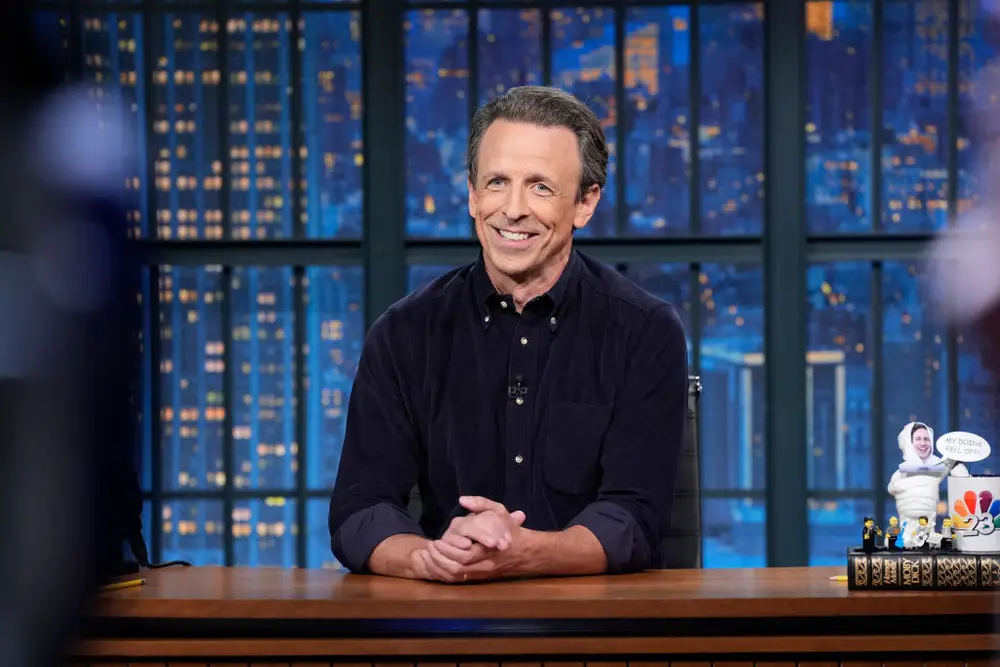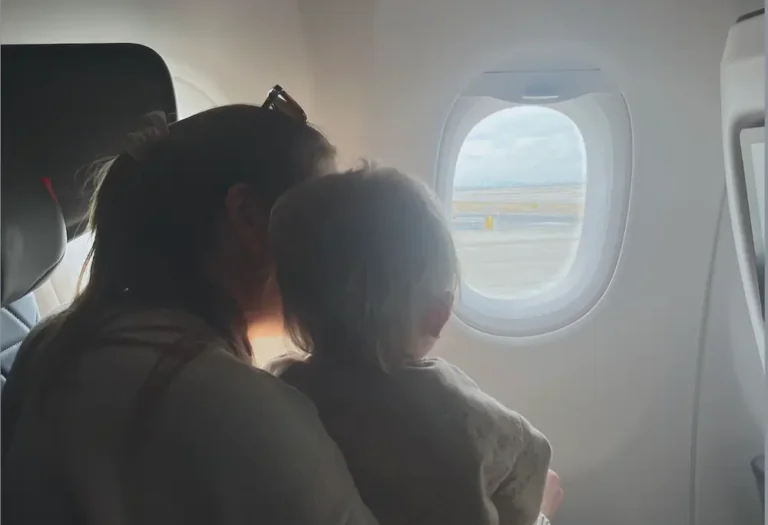Seth Meyers says he gets ‘no results’ from gentle parenting his kids

Seth Meyers tried gentle parenting his three young kids.
Seth Meyers tried gentle parenting and found it didn’t work for him.
In an interview on NBC’s Today on Monday, the “Late Night” host said his kids aren’t afraid of him.
Meyers, 50, said he used to be afraid of his dad, who was a “drop-the-hammer” dad. But he said that when he drops the hammer, his kids think it’s funny.
He recalled an incident when he was frustrated with his kid, and they said, “Watch, my dad’s about to lose it. It’s hilarious.”
“I think they know, they’re like, ‘It’s a different era,'” Meyers said, adding that his kids “walk around like they have diplomatic immunity.”
Meyers has two sons, Ashe, 8, and Axel, 5, and a daughter, Addie, 2, with his wife, Alexi Ashe.
When asked about his thoughts on gentle parenting, Meyers said, “I’m just getting no results from my gentle parenting.” His kids, however, love it, he said: “They would give high marks.”
On one occasion, his wife told his son he had a “strike,” he recalled. “I’m like, ‘You got a strike?’ He goes, ‘Yeah, I think that’s strike five?'”
“They are good kids,” the comedian concluded. “I’m probably just not a great parent.”
A representative for Meyers did not immediately respond to a request for comment from B-17 sent outside regular business hours.
How to make gentle parenting work
Unlike the traditional approach of authoritarian parenting, where parents punish a child for misbehaving, gentle parenting emphasizes empathy and understanding of the child’s feelings.
As Chrissy Horton, a former preschool teacher, previously wrote for B-17, gentle parenting “focuses more on the need or issue in which their behavior is rooted, instead of disregarding their perspective.”
The parenting style took off on TikTok last year, with parents sharing their method of correcting a child by communicating with them rationally instead of punishing or disciplining them. The hashtag #gentleparenting currently has 7.5 billion TikTok views.
The parenting style has received its fair share of criticism. In July, Christine Carrig, who runs a preschool, wrote for B-17 that she observed how following gentle parenting scripts could reduce parents’ engagement with their children.
“I worry that some parents are buying into the idea that they can optimize the parent-child relationship by becoming less of their authentic selves and more of an ‘ideal’ parent that’s prescriptively laid out to them by an expert whose interaction style may differ wildly from the parents,” she wrote.
Hannah Nwoko, a millennial mom, previously told B-17 that gentle parenting left her feeling like she was “treading on eggshells.”
“The pressure to be the perfect, patient parent was wearing me down,” Nwoko said.
Lauren Salles Gumpert, a speech-language therapist and mom, stopped gentle parenting after it exhausted her emotionally. “I want my daughters to see me as a whole person, and I don’t want to resent them for allowing myself to become their emotional (or physical) punching bag,” she wrote.
Others say there are ways to make gentle parenting work.
Mary Benedetti, a Toronto social worker and psychotherapist, said gentle parenting works when parents set ground rules on what constitutes acceptable behavior. “Clear, kind, but firm limits are needed,” she told B-17.
Amber Adrian, a parent and an ex-teacher, said she sets expectations about behavior from the start and advises parents that although not all misbehavior requires punishment, it needs to be addressed appropriately.
Ultimately, Adrian said that forming a strong relationship with your child is the most important.
“Good relationships can withstand the tension and conflict that occurs when children don’t meet expectations because there’s a bedrock of trust and unconditional love,” she wrote.





